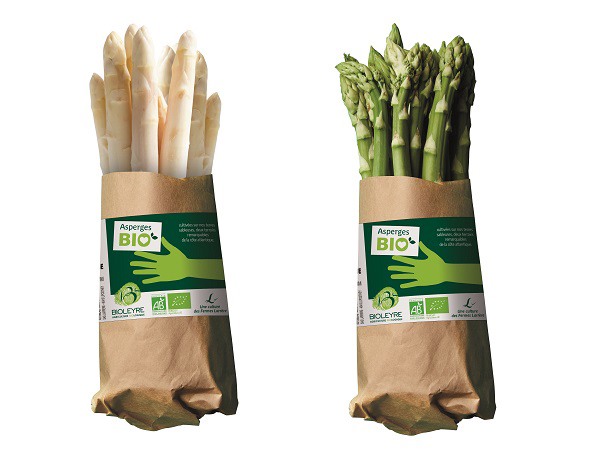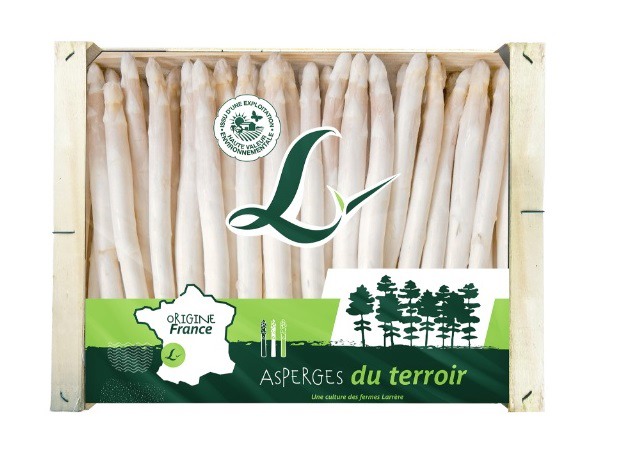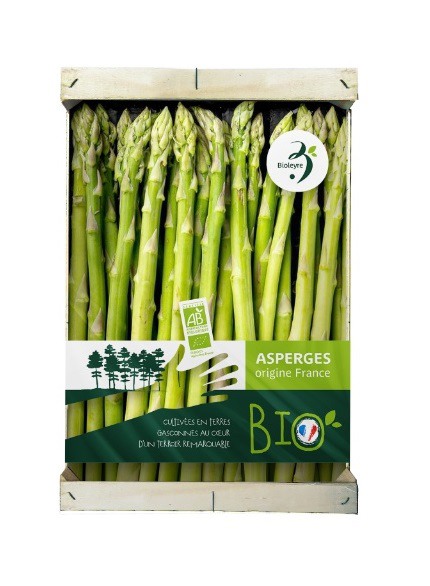“Our farms of the Gascony region are starting their campaign of organic Landes asparagus this week.” This asparagus has a great reputation thanks to the soils where it is produced: sandy soils that extend over the entire western Aquitaine basin, giving it characteristics that are quite different from other asparagus grown on land. Our asparagus looks and tastes different, with its “thinner skin and higher sugar content.” These qualities have even earned it the "Gourmets of France" award (MOF, starred chefs), with a score of 4.6/5 for the white asparagus and 4.2/5 for the green asparagus.

The Larrère farms grow 50% of white asparagus and 50% of green asparagus.
Asparagus beetle: a major challenge
“Our biggest challenge is to maintain the crop in good condition because the pressure from pests has been increasing due to the heat.” This pressure should have a “clear impact on yields,” according to Elouann, asparagus cultivation technician, and Côme Fortin, crop manager. The asparagus beetle, an insect pest specific to asparagus, is “more difficult to control in organic farming because we only have one registered active ingredient to fight it.” This is a recurring problem that affects the entire country, and more particularly the southwest of France, causing up to 30% of losses. A major challenge for the sector, especially since research is progressing but “remains insufficient.”

And to manage the shortage of water, which is expected to increase over the years, the Larrère farms have set up a drip irrigation system that also allows for significant water savings.
Harvesting asparagus: a know-how that must be promoted
The price of organic asparagus from the Landes region may seem high, but it is partly because the asparagus are harvested manually, and because weeding is also involved. For several years now, labor has also become increasingly difficult to find. The know-how of those who harvest asparagus “must be promoted”, because harvesting requires a certain physical condition and up to 3 weeks of training in order to “develop the precise gesture that protects the product and allows the harvest to progress at a sufficient rate. And to reduce strenuousness and costs, the company has invested in photovoltaic panels to help with the harvest.
has also become increasingly difficult to find. The know-how of those who harvest asparagus “must be promoted”, because harvesting requires a certain physical condition and up to 3 weeks of training in order to “develop the precise gesture that protects the product and allows the harvest to progress at a sufficient rate. And to reduce strenuousness and costs, the company has invested in photovoltaic panels to help with the harvest.
The Larrère farms now rely on photovoltaic technology. By 2022, 100% of the crops will be equipped, in another step towards energy sobriety and improving working conditions by protecting workers from the sun and avoiding the need to regularly recharge batteries.
Although a “difficult” crop, the asparagus is the pride of the company. Yields may be lower than for traditional crops, but “the organic green asparagus grown in southwestern France are rare so we are very happy to produce this demanding crop.”
For more information:
Patrick Larrère
Fermes Larrère
2430 Route Douc, 40410 Liposthey
[email protected]
fermes-larrere.fr










